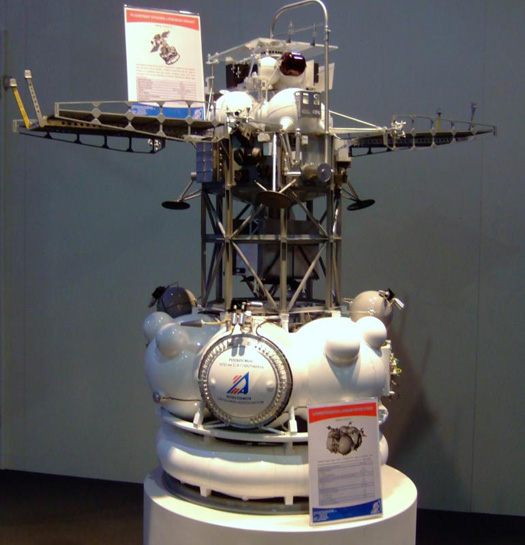

At 3:16 pm EST today, Russia will launch the Phobos-Grunt mission from the Baikonur cosmodrome in Kazakhstan. The unmanned probe is traveling to the Martian moon Phobos, in an attempt to bring back the first soil sample (“grunt” is Russian for “soil”) from the smaller of the planet’s moons. The irregularly shaped Phobos is the closest moon to its planet in the solar system, orbiting the red planet at just under 10,000 kilometers.The mission is a chance to study how planets and moons form.
Beyond its scientific value, the mission serves as a much needed morale boost for the Russian space program. If it succeeds, it will be the first successful planetary mission since the collapse of the Soviet Union in 1991.
“The problem with Russian space exploration has been that people have forgotten the taste of victory. The task of this mission is to restore confidence in our abilities and the importance of the task,” Igor Lisov, editor-in-chief of the Russian space journal Novosti Kosmoavtiki (Space News) told Agence France-Presse. The last two Soviet probes to Mars were sent in the 1980s, but only one made it to a Martian orbit, and it lost communication shortly afterward. Most recently, the Russian Mars 96 probe, an ambitious mission to land on the planet and penetrate its surface (the massive probe contained an orbiter, a surface station, and a surface penetrator), ended in a humiliating failure when the spacecraft crashed back to Earth. Along with its plutonium fuel supply, it is thought to have landed in the Pacific Ocean or in Chile.
The Phobos-Grunt probe will also deploy a Chinese probe, Yinghuo-1, which will orbit Mars, in addition to other international experiments, including a capsule of microbes from the US Planetary Society, which will test the sustainability of basic lifeforms on the planet. The probe is scheduled to reach Mars and deploy the Phobos lander in 2012, and return the soil sample to Earth in August of 2014.
